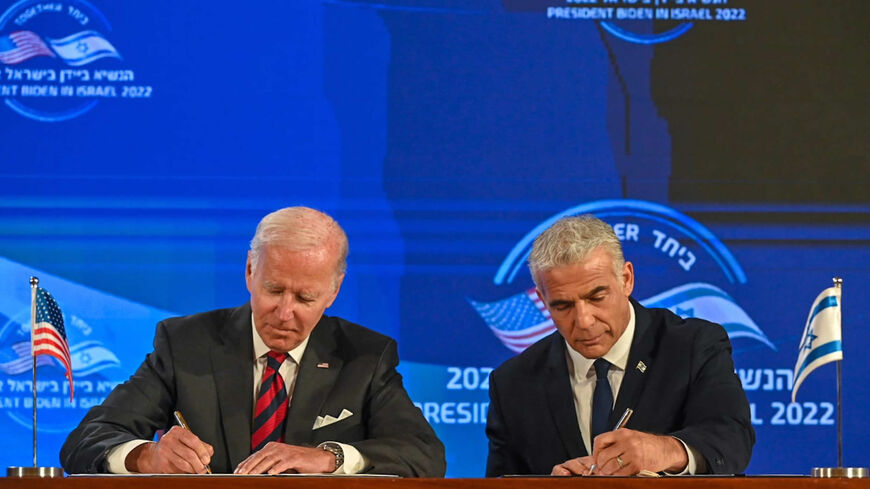U.S. President Joe Biden’s whirlwind visit to Israel, his tenth in nearly 50 years, was a striking reaffirmation of Israel’s deep bonds with the United States and a stark demonstration of their differences over two major issues.
The Jerusalem Declaration, a joint statement issued by Israel and the United States, hailed their strategic partnership and pointed to “a bedrock of shared values, shared interests and true friendship.”
The declaration noted that the United States is prepared “to use all elements of its national power” to ensure that Iran — Israel’s foremost enemy — is never allowed to acquire a nuclear weapon.
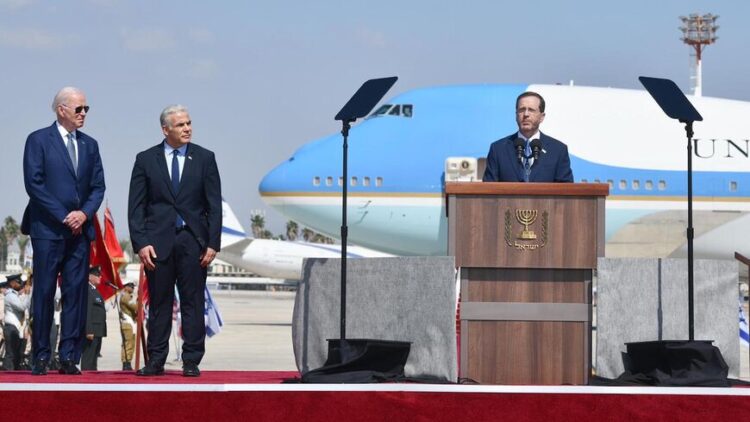
The United States also pledged to work with regional partners “to confront Iran’s aggression and destabilizing activities, whether advanced directly or thorough proxies and terrorist organizations such as Hezbollah, Hamas and Islamic Jihad.”
Asked at a press conference whether he would use force against Iran if it joined the nuclear club, Biden replied, “If that was the last resort, yes.”
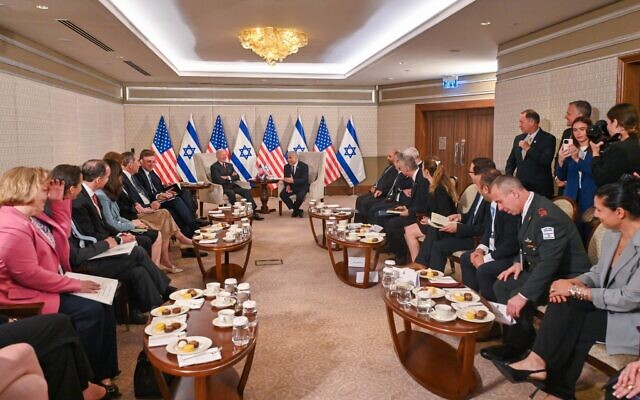
He issued that threat after telling an Israeli journalist in a pre-recorded interview that the relationship between the United States and Israel has never been deeper and that the connection of Israelis to Americans is “bone-deep, bone-deep.”
But Biden disappointed his host, Prime Minister Yair Lapid, by insisting that diplomacy is the optimum method to deal with Iran’s nuclear program, and that talks to revive the 2015 Iran nuclear agreement may yet succeed.
“Words will not stop them, Mr. President,” said Lapid, contradicting Biden and reflecting Israel’s opposition to the agreement as it is presently constituted. “Diplomacy will not stop them. The only thing that will stop Iran is knowing that if they continue to develop their nuclear program, the free world will use force. The only way to stop them is to put a credible military threat on the table.”
Lapid added that Iran should “pay a heavy price” if it contravenes the terms of the agreement, from which the United States withdrew unilaterally in 2018 during the presidency of Donald Trump, Biden’s predecessor.

Lapid’s national security advisor, Eyal Hulata, said that Israel had no compunctions about differing with the United States over Iran. “We aren’t afraid to tell the Americans what we think,” he said. “Israel will act as it sees fit.” Hulata claimed that Israel’s aggressive approach to Iran has not impaired its relations with the United States, its chief ally, in the slightest.
Biden also broke ranks with Israel by restating his commitment to Palestinian statehood and a two-state solution to resolve Israel’s conflict with the Palestinians. Biden, however, incensed the Palestinians by saying that the likelihood of a two-state solution in the “near term” is dim.
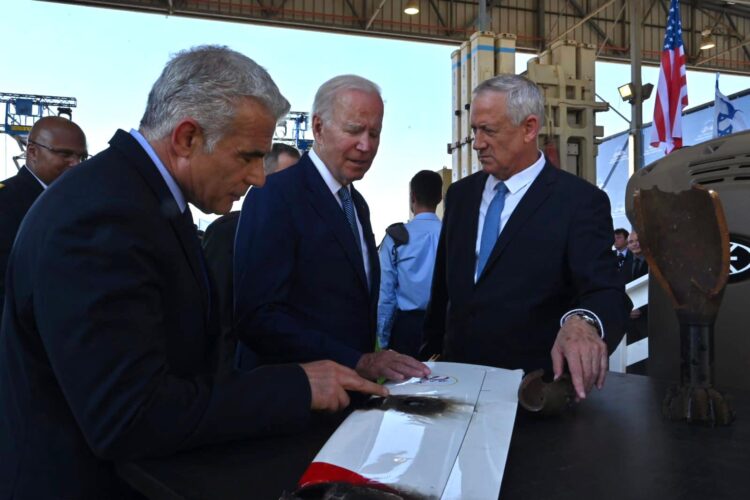
At a joint press conference in Ramallah with Mahmoud Abbas, the president of the Palestinian Authority, Biden hit all the right notes.
“The Palestinian people deserve a state of their own that’s independent, sovereign, viable and contiguous,” he said, breaking ranks with the Israeli government. “Two states along the 1967 lines, with mutually agreed (territorial) swaps.”
But then Biden dashed Palestinian hopes by saying that “the ground is not ripe at this moment to restart negotiations.”
The last round of Israeli-Palestinian peace talks, sponsored by the United States, took place in 2013 and 2014 and ended inconclusively.
In a sop to the Palestinians, Biden announced a $316 million package of assistance to Palestinian health care facilities in East Jerusalem and the West Bank. Last year, the Biden administration restored $500 million in aid to the Palestinian Authority which had been cancelled by the Trump administration.
Under pressure from the United States, the Saudi Arabian government announced that its air space would be opened to Israeli carriers en route to the Far East, and that Muslim pilgrims from Israel would have access to direct flights to Saudi Arabia.
The announcement emboldened Biden and Lapid to claim that this was the first tangible step toward a rapprochement between Israel and Saudi Arabia.
But shortly after Biden’s departure from Jeddah, the second leg of his four-day trip to the Middle East, two senior Saudi officials poured cold water on their rosy interpretation of events.

Foreign Minister Prince Faisal bin Farhan said that Saudi Arabia’s decision to open its air space to Israel had nothing to do with normalization. “The issue of overflights (was taken) in the interest of providing connectivity between countries in the world.”
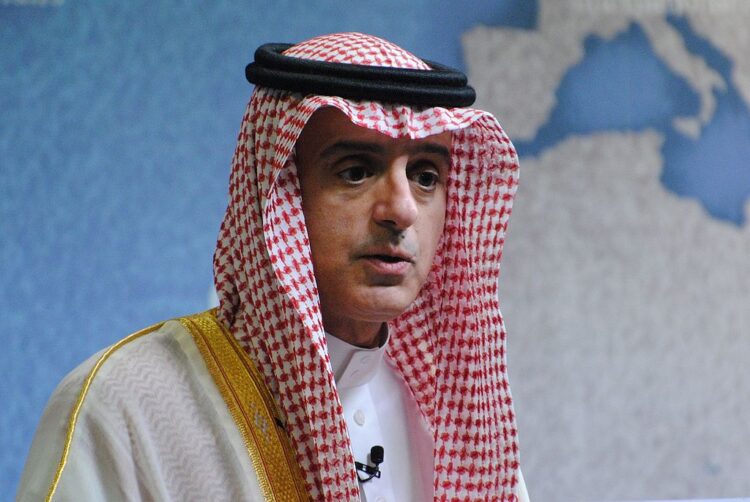
Minister of State for Foreign Affairs Adel al-Jubeir reaffirmed the Saudi position that normalization can only occur after Israel settles its dispute with the Palestinians. As he put it, “Peace comes at the end of this process, not at the beginning of it.”
Jubeir mentioned the 2002 Arab League peace proposal, which offered Israel normalization with the Arab world in exchange for its full withdrawal from territories captured during the 1967 Six Day War and the establishment of a Palestinian state in the West Bank and the Gaza Strip, with East Jerusalem as its capital.
Israel rejected the initiative.
Since then, Saudi Arabia has hewed unwaveringly to this policy. Two of its neighbors, the United Arab Emirates and Bahrain, plus Morocco and Sudan, normalized ties with Israel under the 2020 Abraham accords. But Saudi Arabia refused to join this circle of peace.
The Saudis will probably not alter their policy unless Israel resolves its conflict with the Palestinians. The much seems clear following Biden’s journey to the Middle East.
